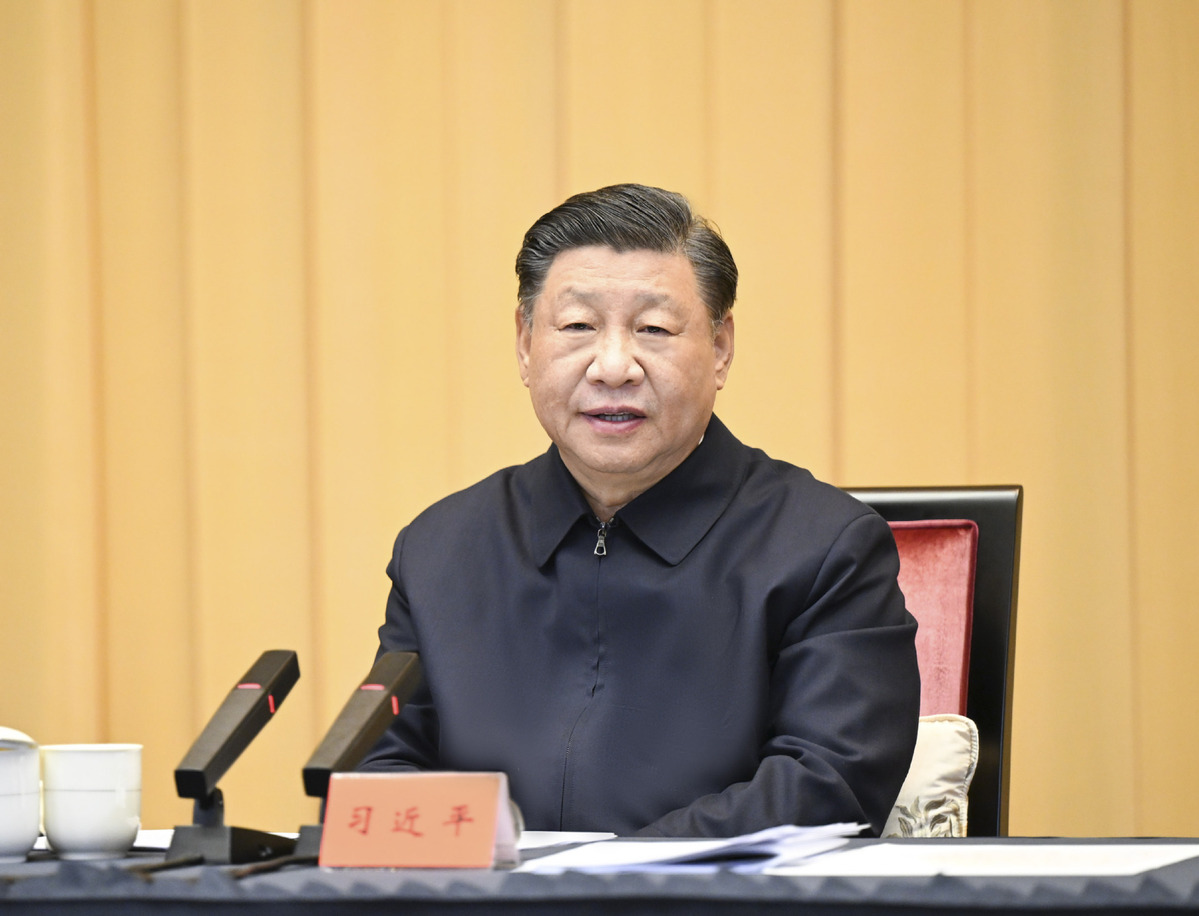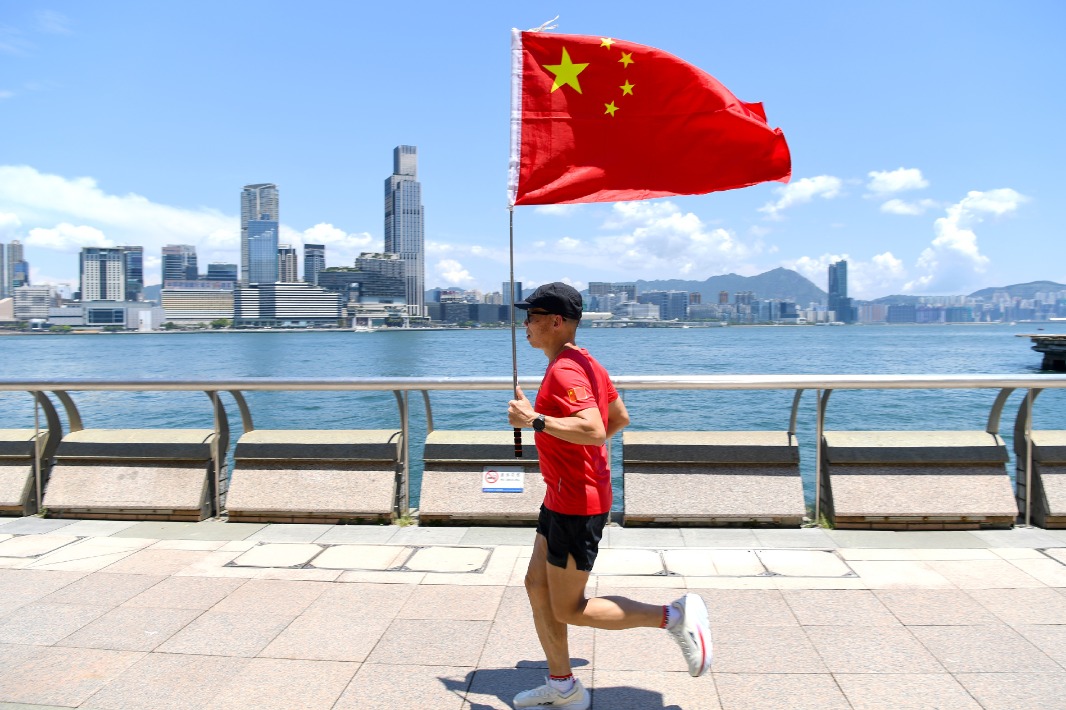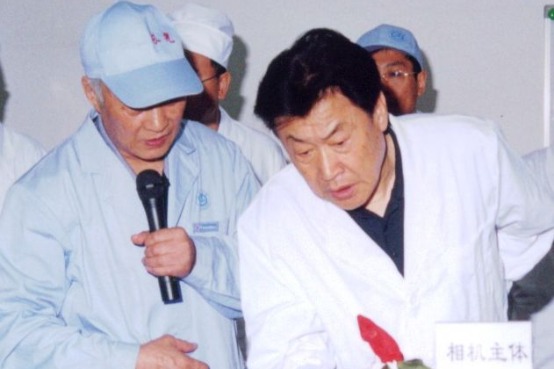Xi: Accelerate Yangtze delta integration


President calls for region to take lead in higher-level reform and opening-up
President Xi Jinping called on Thursday for new major breakthroughs in the integrated development of the Yangtze River Delta, so that the region can better lead the nation in pursuing Chinese modernization.
Xi, who is also general secretary of the Communist Party of China Central Committee and chairman of the Central Military Commission, presided over a symposium with senior officials on advancing the region's integrated development, during a fact-finding trip to Shanghai.
The Yangtze River Delta, which comprises Shanghai and Jiangsu, Zhejiang and Anhui provinces in East China, has long been China's economic powerhouse, with its high level of opening-up and strong capacity in innovation.
Xi listened to briefings during the session from Zheng Shanjie, head of the National Development and Reform Commission, and the Party secretaries of the four provincial-level regions.
He highlighted the significance, for the integrated development of the region, of further enhancing its innovation capabilities, industrial competitiveness and development levels, and taking the lead in forming a new pattern of higher-level reform and opening-up for China.

The region must remain committed to deepening reform, expanding high-level opening-up, coordinating innovation in science and technology and industrial innovation, and making coordinated efforts in ecological and environmental protection and economic growth, he said.
Xi encouraged the region to pilot the way for the nation's common prosperity drive and actively explore the building of a modern Chinese civilization.
According to the National Bureau of Statistics, the GDP of the Yangtze River Delta reached 29 trillion yuan ($4 trillion), or about 24 percent of the national total, in 2022.
The president told the senior officials that the region should continue to bolster its efficiency and quality of development and its effectiveness in leading growth, adding that there is still room for integration in key sectors and locations.
He emphasized the need for the Yangtze River Delta region to strengthen cross-regional coordination in scientific and industrial innovation, give rise to new industries and new models, create new development opportunities and cultivate new growth drivers.
The region must participate in international sci-tech cooperation with more open thinking and measures and create an innovation climate with global competitiveness, he said.
For the area to refine its system and mechanism for integrated development, Xi said it is necessary for regional divisions and administrative barriers to be broken down at the institutional level.
Xi also put forward a vision for the region to move forward with high-level, coordinated opening-up, with efforts to prioritize institutional opening-up and to enhance mutual learning and replication of experiences in reform.
Shanghai must expedite its steps to build itself into hub for global economy, finance, trade, aviation and sci-tech innovation and put in place a strategy to upgrade its pilot free-trade zone, he added.
The Yangtze River Delta, also characterized by its robust private sector, should take the lead in implementing measures aimed at incentivizing, supporting and guiding the private sector, and further optimize the business environment for private businesses, he said.
Xi set out requirements for the region to coordinate the co-governance of ecology and the environment, saying that the three provinces and Shanghai should align their redlines for ecological protection and jointly protect key ecological shields and corridors.
He stressed the need to encourage energy-saving, carbon reduction, and efficiency improvements in key sectors and industries, develop strong and high-quality green and low-carbon industries and establish a sound green industry system.
The president called for the region to bolster its capacity in secure development, saying that it should focus on sectors and major infrastructure and facilities related to national and regional security to beef up its risk prevention and control system and capacity.
The region should pursue institutional opening-up of the financial sector in a steady manner to enable easier cross-border investment and financing and enhance whole-process risk prevention and control, in order to safeguard national financial security, he added.
- The 'running man' of Hong Kong: celebrating patriotism with Chinese national flag
- Dalian nature reserve becomes a safe stopover for migrating raptors
- US tourist's adventures at Luyuan Town in Jining
- Chongqing kicks off ethnic celebrations with bamboo ring ball match
- Two more service stations in Shanghai
- Profile: Wang Yongzhi, visionary rocket designer and manned spaceflight planner





































